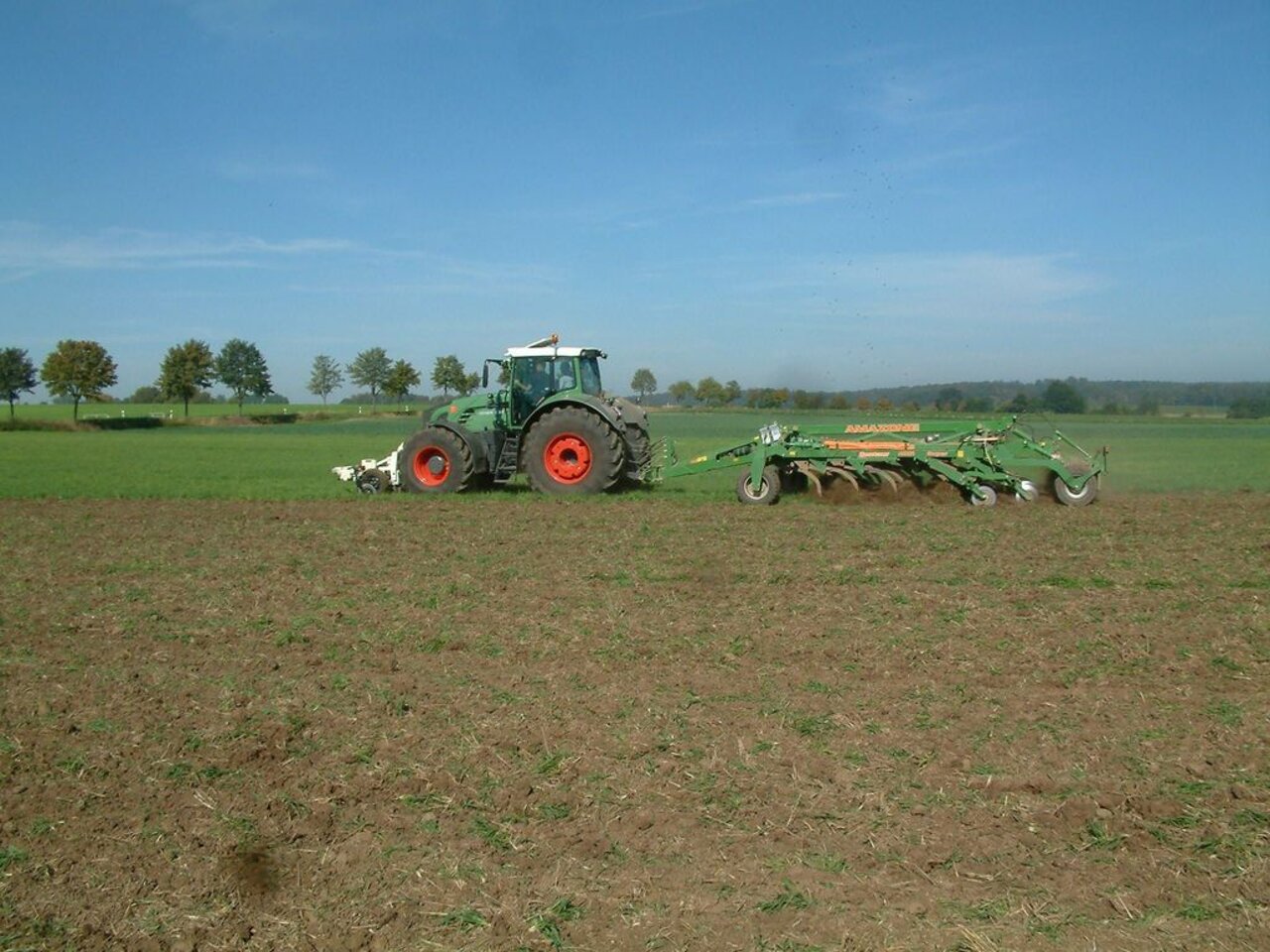Project
Site adapted soil tillage

Drafting of strategies and solutions for good practices for soil use with straw management and conservational soil tillage (precision farming)
Intensive soil tillage systems provide a low topsoil protection and lead to a strong soil loosening. This increases the danger of silting, soil erosion and soil compaction. The loosening depth effects the degree of soil cover, the infiltration through aeration and load bearing capacity of the soil.
Background and Objective
Comprehensive total area soil protection as well as the prevention of silting and soil erosion can be achieved with organic residues from previous and/or intermediate crops with non turning tillage with/without loosening. Organic residues of inter- and cover crops and conservation tillage techniques ensure a comprehensive and area wide soil cover. This can reduce the erosion starting process of silting. By the increasing activity of earth worms biogenic vertical pores with an increased infiltration capacity are produced. A conservative soil loosening improves the load bearing capacity of the soil and reduces the risk of soil compaction.
Target Group
Policymakers, extension services and agricultural practitioners
Approach
Comparing field trials under practice orientated conditions with sampling and examination in the laboratory: measuring the traverse straw distribution behind a harvester, rating of the degree of soil cover by organic residues, measuring the soil deformation as an indicator for the load bearing capacity of the soil, analysis of soil physical parameters.
Data and Methods
Data recording in the field: Recording technical machine data (drag force, fuel consumption, track depth) and their soil physical effects (track depth, soil compaction, water- and air balance , deduction of trafficability)
Our Research Questions
Energy consumption, area performance and working quality and the effect of agronomic parameters relevant for soil protection
Thünen-Contact

Involved external Thünen-Partners
- Kuratorium für Technik und Bauwesen in der Landwirtschaft e.V. (KTBL)
(Darmstadt, Deutschland) -
Hochschule Weihenstephan-Triesdorf
(Weihenstephan, Deutschland) - Julius Kühn-Institut - Bundesforschungsinstitut für Kulturpflanzen (JKI)
(Quedlinburg, Braunschweig, Groß Lüsewitz, Kleinmachnow, Deutschland) - Christian-Albrechts-Universität zu Kiel
(Kiel, Deutschland) -
Agroscope
(Reckenholz, Schweiz) -
Humboldt-Universität zu Berlin
(Berlin, Deutschland)
Duration
Permanent task 1.1993 - 12.2022





